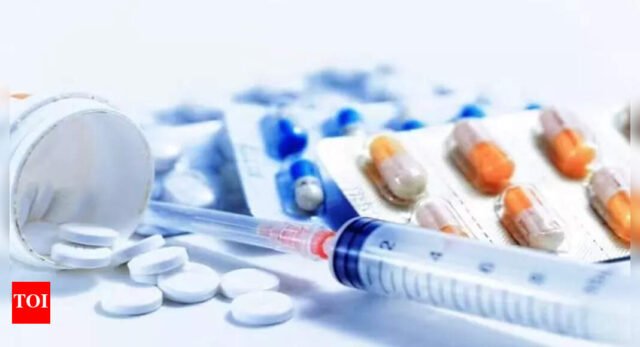Hyderabad: Telangana may account for nearly 40% of India’s drug production, but the state continues to depend on just one drug testing laboratory, raising serious concerns over the effectiveness of its quality control system.Often described as the “country’s bulk drug capital,” Telangana sees around 5 to 6 non-standard quality (NSQ) drugs flagged every month by the Central Drugs Standard Control Organisation (CDSCO). The major pharma hubs are spread across Jeedimetla, Uppal, Kapra, Cherlapally, Pashamylaram, Jinnaram, Bollaram, and Choutuppal.In 2024, the Drugs Control Laboratory, Telangana analyzed 4,037 drug samples, of which 130 were reported as NSQ. During 2025, up to July, the lab had already tested 3,162 samples, with 55 found to be sub-standard.Officials admit that the sole lab in Hyderabad is overstretched, struggling to meet the testing requirements of hundreds of manufacturers. To address the gap, proposals have been sent to the govt to establish four regional labs in Warangal, Nizamabad, Mahabubnagar, and Nalgonda.“While most of the drugs manufactured in Telangana are exported, medicines meant for domestic use largely come from Himachal Pradesh, Sikkim, and Uttarakhand. That increases the burden on our labs as we need to test a lot more samples from the supply chain,” said a senior drug inspector (DI) from the Drug Control Administration (DCA) office in Vengalrao Nagar.Currently, the lab manages to analyse 5,000 to 6,000 samples annually, against a target of 12,000. “We are able to check around 350 to 400 samples a month, some of which even come from outside the state,” the official added.The DCA hopes that new labs will drastically improve efficiency. “Along with more labs, we also need drug inspectors to lift more samples. It will also help us keep better checks on pharma stores,” the DI explained.At present, the maximum turnaround time for a drug analysis report is two months, but delays are common due to the single-lab bottleneck. “With more labs, reports will come faster. That means unsafe drugs can be recalled before stocks are exhausted,” said DI from Secunderabad.He stressed that decentralisation would also be more convenient for field inspectors. “Right now, we either send samples by registered post or carry them to lab. With regional labs, spurious drugs can be addressed promptly.”Most spurious drugs, officials note, originate from Kolkata, Delhi, Himachal Pradesh, and Uttar Pradesh. Once flagged, samples are picked from local markets and tested. Sub-standard ones are marked as NSQ, while counterfeit ones are labelled spurious.Sources said the proposed labs are planned jointly with food safety labs. “More drug inspectors will also be needed to run these labs, and recruitment plans are in motion,” a health wing official said.







